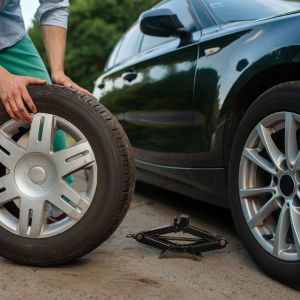Your car, once a reliable companion on the road, has suddenly left you stranded. The frustration and inconvenience of a car breakdown can be overwhelming, but understanding the root causes can be the key to preventing future automotive woes. In this detailed guide, we will delve into the various factors that may contribute to your car breaking down unexpectedly. Understanding the common causes of a breakdown car can save you time, money, and a lot of frustration on the road.
The Anatomy of a Breakdown
Car breakdowns are not isolated incidents but rather the result of a combination of factors. One of the primary contributors is the lack of regular maintenance. Over time, components wear out, fluids degrade, and systems become prone to failure. Neglecting routine check-ups and servicing can turn a seemingly minor issue into a major breakdown, leaving you stranded and with a hefty repair bill.
Common Culprits For Car Breakdown
Cars are complex machines with numerous components working in harmony. A breakdown can often be attributed to common issues such as a dead battery, faulty alternator, or issues with the starter motor. These components are crucial for initiating and maintaining the engine’s operation. A battery that has reached the end of its life span, a malfunctioning alternator, or a starter motor on the brink of failure can result in your car grinding to a halt.
Overheating Woes

An overheated engine is a common sight on the side of the road, and it’s often a symptom of underlying issues. Coolant leaks, a malfunctioning thermostat, or a failing radiator fan can all contribute to engine overheating. Ignoring these warning signs can lead to severe engine damage and an unexpected breakdown. Regularly checking and maintaining the cooling system is crucial for preventing overheating-related breakdowns.
Ignition System Malfunctions: Sparks of Trouble
The ignition system plays a crucial role in starting your car’s engine. Faulty spark plugs, ignition coils, or a malfunctioning ignition control module can disrupt the combustion process, causing your vehicle to stall unexpectedly. Regular inspection and replacement of spark plugs can prevent ignition-related breakdowns, ensuring a smoother ride.
Electrical Gremlins
Modern cars are equipped with a plethora of electrical components, from sensors to control modules. Any issues within the electrical system can lead to a breakdown. Common electrical problems include a faulty ignition switch, malfunctioning sensors, or problems with the wiring harness. Diagnosing and fixing electrical issues can be challenging and often requires the expertise of a professional mechanic.
Tire Troubles

While it may seem like a simple component, the condition of your tires plays a significant role in your car’s overall performance. A flat tire, worn-out treads, or a blowout can leave you stranded on the roadside. Regularly checking tire pressure, rotating tires, and replacing them when necessary are crucial aspects of preventive maintenance that can help you avoid unexpected tire-related breakdowns.
Transmission Turmoil
The transmission is a vital component that ensures power is delivered from the engine to the wheels. Transmission issues can manifest in various ways, from slipping gears to strange noises. Ignoring these signs can lead to a complete breakdown. Regular transmission fluid checks and timely maintenance can help prevent major transmission problems and ensure the smooth operation of your vehicle.
Preventive Maintenance
The key to avoiding unexpected breakdowns lies in proactive and regular maintenance. Following the manufacturer’s recommended maintenance schedule, which includes oil changes, fluid checks, and component inspections, can significantly increase the longevity of your vehicle. Regular visits to a trusted mechanic for diagnostic checks can help identify potential issues before they escalate into major problems.
Common Culprits

At the heart of many breakdowns are issues with essential components like the battery, alternator, and starter motor. A dead battery, a failing alternator, or a malfunctioning starter motor can bring your journey to an abrupt end. Regularly checking the health of these components and replacing them when needed is vital to avoid the inconvenience of a breakdown.
A dead battery is a common culprit for breakdowns. When the battery reaches the end of its life span, it struggles to provide sufficient power to start the engine. A faulty alternator, responsible for charging the battery while the engine is running, can also lead to a dead battery. Additionally, a failing starter motor, which initiates the engine’s rotation, can cause your car to refuse to start.
Fuel System Failures
The fuel system is a critical element of your vehicle’s operation. Issues such as a clogged fuel filter, a malfunctioning fuel pump, or problems with fuel injectors can disrupt the proper flow of fuel to the engine. Without a consistent fuel supply, your car’s performance can suffer, leading to breakdowns. Regularly servicing the fuel system, including replacing filters, is essential for preventing these issues.
Transmission Turmoil
The transmission is a critical component responsible for transmitting power from the engine to the wheels. Transmission issues, ranging from slipping gears to unusual noises, can lead to a complete breakdown. Regular transmission fluid checks and timely maintenance are essential to prevent major transmission problems and ensure the smooth operation of your vehicle.
Suspension and Steering Issues: Handling Breakdowns
Issues with your car’s suspension and steering systems can compromise safety and lead to breakdowns. Worn-out shocks, struts, or steering components can affect your vehicle’s stability and control. Regular inspections, timely replacement of worn parts, and proper wheel alignment contribute to a smoother ride and help avoid breakdowns related to suspension and steering problems.
Preventive Maintenance
The key to avoiding unexpected breakdowns lies in proactive and regular maintenance. Following the manufacturer’s recommended schedule, which includes oil changes, fluid checks, and component inspections, can significantly increase your vehicle’s longevity. Regular visits to a trusted mechanic for diagnostic checks can help identify potential issues before they escalate into major problems.
Conclusion
While a car breakdown can be a frustrating experience, understanding the reasons behind it can empower you to take proactive measures. From common issues to preventive maintenance, staying informed about your vehicle’s health is the first step towards ensuring a smooth and trouble-free ride. Remember, regular care and attention can go a long way in preventing unexpected automotive woes and keeping you confidently on the road.

